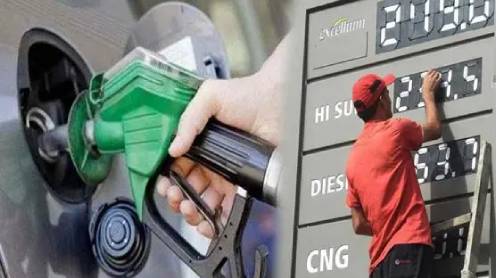U.S. oil demand and inventories have offered support to oil prices in recent months and, volatility excluded, have continued to do so, with stocks below the five-year average for this time of the year.
While oil prices have swung in recent weeks between as high as $85 in late October to below $70 in late November amid fears of Omicron denting demand and a looming oversupply, lower-than-usual American stockpiles have been one constantly bullish theme for oil, especially the U.S. benchmark, WTI Crude.
Coupled with robust U.S. gasoline demand and a record high overall petroleum demand, tight American inventories have propped up oil prices, or at least prevented them from falling too much despite the market fears of a slowdown in global oil demand recovery and the return to oversupply in coming weeks.
Earlier this week, the International Energy Agency (IEA) said that the surge in COVID cases was set to temporarily slow the recovery in global oil demand, but the impact of the Omicron variant would likely be more muted than previous waves and would not upend the current demand recovery
“New containment measures put in place to halt the spread of the virus are likely to have a more muted impact on the economy versus previous Covid waves, not least because of widespread vaccination campaigns. As a result, we expect demand for road transport fuels and petrochemical feedstocks to continue to post healthy growth,” IEA said in its latest Oil Market Report for December.
Jet fuel demand is the biggest victim of the Omicron scare as international travel was again restricted with tougher entry requirements in many countries, including for fully vaccinated travelers.
Yet, demand for other fuels holds globally. This is especially true for the United States, where gasoline consumption is robust despite high prices and where petroleum inventories are lower than usual for this time of the year.
Even with the expected product and crude builds in the coming months, inventory increases will be starting from much lower levels than in previous years, preventing a massive oversupply and limiting the downward pressure on oil prices, Reuters columnist John Kemp notes.
For last week, the Energy Information Administration (EIA) reported a crude inventory draw of 4.6 million barrels for the week to December 10. At 428.3 million barrels, crude oil inventories remain 7% below the five-year average for this time of the year. Last week’s draw compares with a modest 200,000-barrel decline in crude inventories for the previous week.
Gasoline inventories fell by 700,000 barrels for the week to December 10, which compared with a build of 3.9 million barrels for the previous week. Total gasoline inventories are now about 6% below the five-year average for this time of year. In middle distillates, the EIA estimated an inventory decline of 2.9 million barrels for the week to December 10, versus an increase of 2.7 million barrels for the previous week. Distillate fuel inventories are about 9% below the seasonal five-year average.
Moreover, implied gasoline demand jumped to 9.47 million bpd last week from 8.96 million bpd in the prior week.
In addition, total implied petroleum consumption in the United States rose to a record 23.191 million bpd for the week ending December 10. The previous record was set during the week ending August 27 of this year, which reached fresh highs of 22.820 million bpd.
The fast spread of the Omicron COVID variant currently clouds the global oil demand outlook, with high uncertainty and fears of a glut in early 2022, but still robust U.S. petroleum demand, falling U.S. gasoline prices, and crude and product inventories below seasonal norms could prop up oil prices into 2022.





